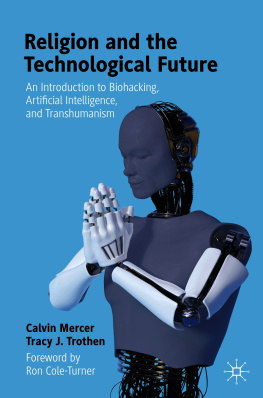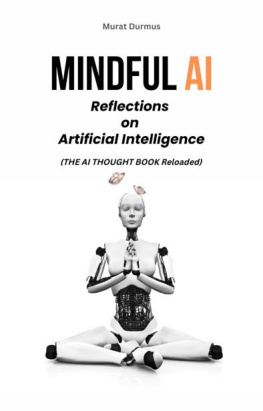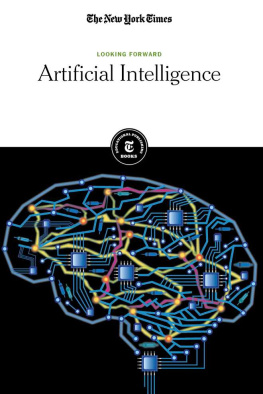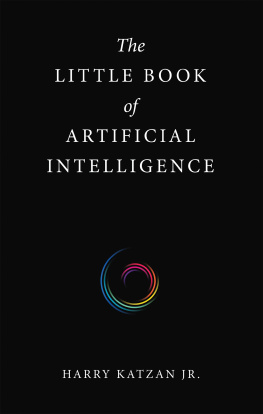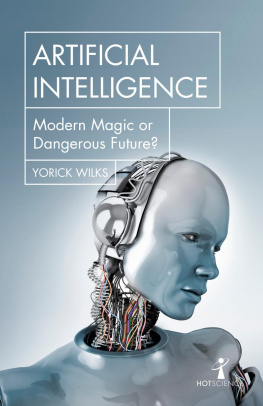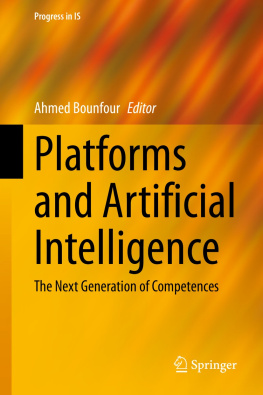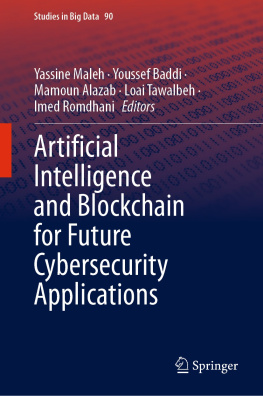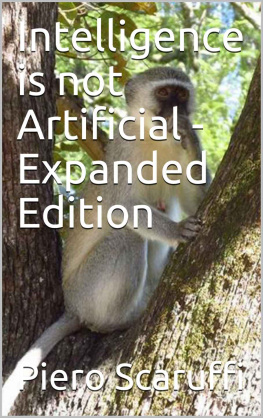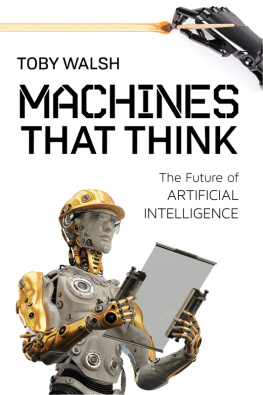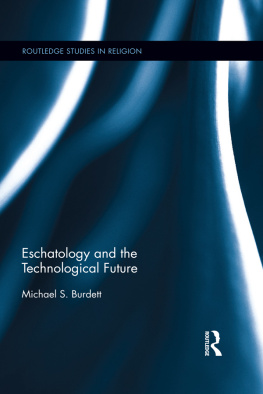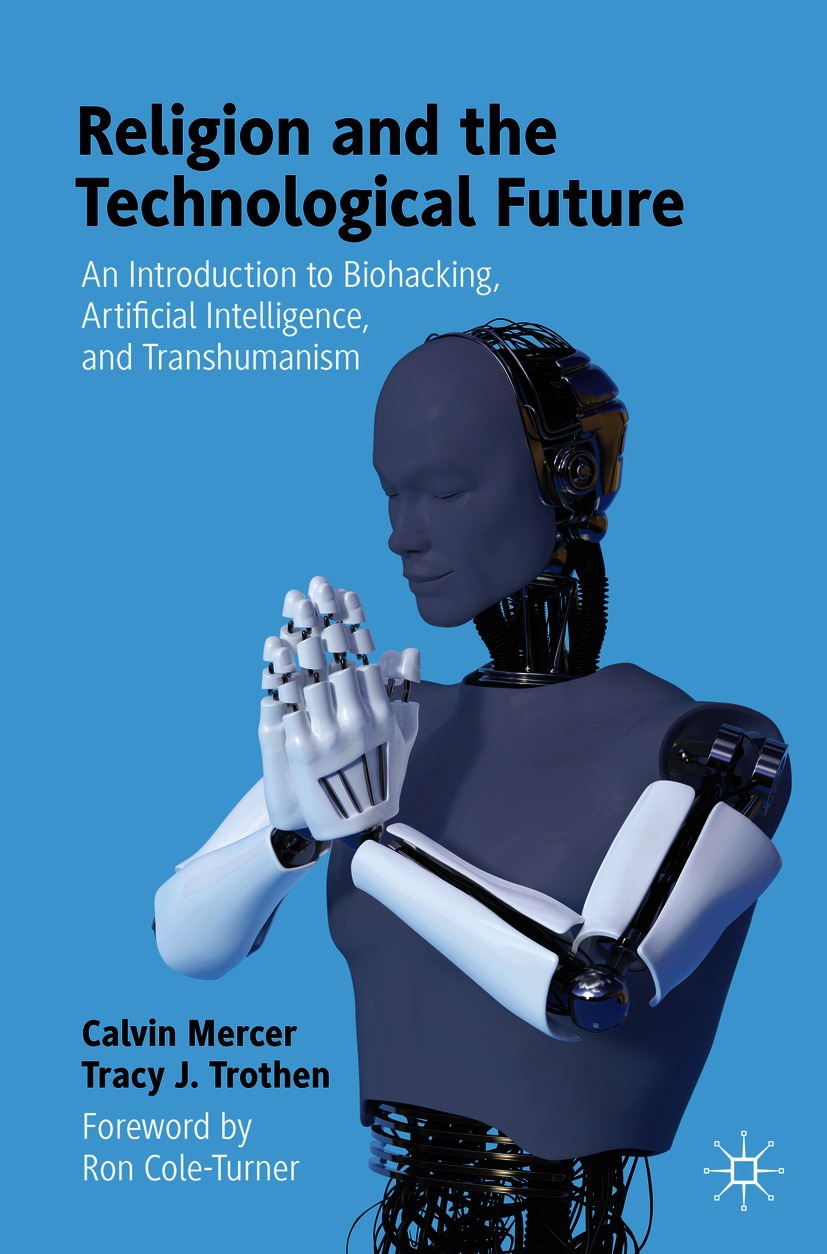Calvin Mercer and Tracy J. Trothen
Religion and the Technological Future
An Introduction to Biohacking, Artificial Intelligence, and Transhumanism
1st ed. 2021

Logo of the publisher
Calvin Mercer
East Carolina University, Greenville, NC, USA
Tracy J. Trothen
School of Religion and the School of Rehabilitation Therapy, Queens University, Ontario, ON, Canada
ISBN 978-3-030-62358-6 e-ISBN 978-3-030-62359-3
https://doi.org/10.1007/978-3-030-62359-3
The Editor(s) (if applicable) and The Author(s), under exclusive license to Springer Nature Switzerland AG 2021
This work is subject to copyright. All rights are solely and exclusively licensed by the Publisher, whether the whole or part of the material is concerned, specifically the rights of translation, reprinting, reuse of illustrations, recitation, broadcasting, reproduction on microfilms or in any other physical way, and transmission or information storage and retrieval, electronic adaptation, computer software, or by similar or dissimilar methodology now known or hereafter developed.
The use of general descriptive names, registered names, trademarks, service marks, etc. in this publication does not imply, even in the absence of a specific statement, that such names are exempt from the relevant protective laws and regulations and therefore free for general use.
The publisher, the authors and the editors are safe to assume that the advice and information in this book are believed to be true and accurate at the date of publication. Neither the publisher nor the authors or the editors give a warranty, expressed or implied, with respect to the material contained herein or for any errors or omissions that may have been made. The publisher remains neutral with regard to jurisdictional claims in published maps and institutional affiliations.
Cover Illustration: Sarah Holmlund / Shutterstock
This Palgrave Macmillan imprint is published by the registered company Springer Nature Switzerland AG.
The registered company address is: Gewerbestrasse 11, 6330 Cham, Switzerland
Like weather reporters checking our daily atmospheric pressure, for nearly two decades Mercer and Trothen have been monitoring biohacking at the frontier of the human and the posthuman. They forecast a coming storm of theological and ethical conundrums. Religion and the Technological Future tells us how to ready ourselves for the storm.
Ted Peters Distinguished Research Professor of Systematic Theology and Ethics Center for Theology and the Natural Sciences, Graduate Theological Union, USA Co-editor, Theology and Science
It is vital that we begin to analyze these difficult questions before, not after, they become reality.
Bill McKibben Schumann Distinguished Scholar Middlebury College, USA Author of Falter: Has the Human Game Begun to Play Itself Out?
Human yearning to prevent morbidity and mortality is so intense that we mostly put it out of our minds, in any way that worksincluding religion, for some people. But this is just one of many ways to relate to our future and our higher powers control over it. This outstanding textbook comprehensively surveys the ecosystem of such thinking. Whatever your stance on these issues, youll find extensive food for thought here.
Aubrey de Grey Chief Science Officer, SENS Research Foundation
Mercer and Trothen have laid down the intellectual infrastructure to enable theology to make a smooth transition into the transhuman future. And precisely because the book is firmly grounded in the religious world-view, it should also prove attractive to secular ethicists who approach their topic from a deep metaphysical perspective that wonders how the ongoing developments in science and technology are transforming what it means to be human.
Steve Fuller Auguste Comte Chair in Social Epistemology University of Warwick, UK Author of Humanity 2.0
Religion and the Technological Future is the first comprehensive and deeply-considered textbook on the intersection of religious thought and twenty-first century technology. Its lively prose brings to life the intellectual, political, and ethical debates that frame our progress into the next stage of human culture. Mercer and Trothen take their years of leadership in the study of radical enhancement and transform that into a textbook that will inspire thoughtful engagement from students, scholars, and the general public.
Robert M. Geraci Professor of Religious Studies Manhattan College, USA Author of Apocalyptic AI: Visions of Heaven in Robotics, Artificial Intelligence, and Virtual Reality
This timely textbook provides a valuable overview of the profound challenges and potential benefits that contemporary technology poses to humanity. Written by pioneering scholars in the field of religion and technoscience, this book introduces key concepts, themes, contributors, and debates on human enhancement and biohacking, radical life extension and cryonics, Artificial Intelligence and digital immortality. Intended for college-level courses in ethics, science and technology studies, religious studies, and psychology, the book is also most useful for programs in faith communities that ponder the promise and peril of technology.
Hava Tirosh-Samuelson Regents Professor of History Director, Center for Jewish Studies Irving and Miriam Lowe Professor of Modern Judaism Arizona State University, USA
Religion and the Technological Future: An Introduction to Biohacking, Artificial Intelligence, and Transhumanism invites thinkers from all disciplines and faiths to contemplate our collective future, and asks us: what sort of future do we want to make? Covering emerging and futuristic technologies, religious and ethical responses, and identifying areas of further inquiry, this ambitious volume offers clear, expert guidance through this urgently needed conversation about what we value about our human selves, and desire for our (post)human future.
J. Jeanine Thweatt School of Humanities and Sciences Flagler College, USA
The world is changing. A.I., robots, genetics, cybernetics, and many other areas demonstrate that traditional religious questions of what does it mean to be human? and what is the role of religion? are all being, or will be, rethought. Religious Studies should not be on the sidelines for this. Trothen and Mercer have provided a Religious Studies textbook for the 21st century that takes on these cutting edge issues and brilliantly shows the way religion is a full participant in these advances. As Religious Studies seeks to be relevant in this new world, this textbook may well become the new standard for introductory classes in Religion and Theology.
Randall Reed Professor of Religion Appalachian State University, USA
Faith, science, life, and technological power are forever intertwined. Since human-driven technological change is speeding up and the potency of life technologies are multiplying exponentially, pastors, religious leaders, and people of faith will need guides to recognize the perils and examine the promises. This guide will be indispensable for speaking love and truth and justice to the human condition of today and tomorrow.

